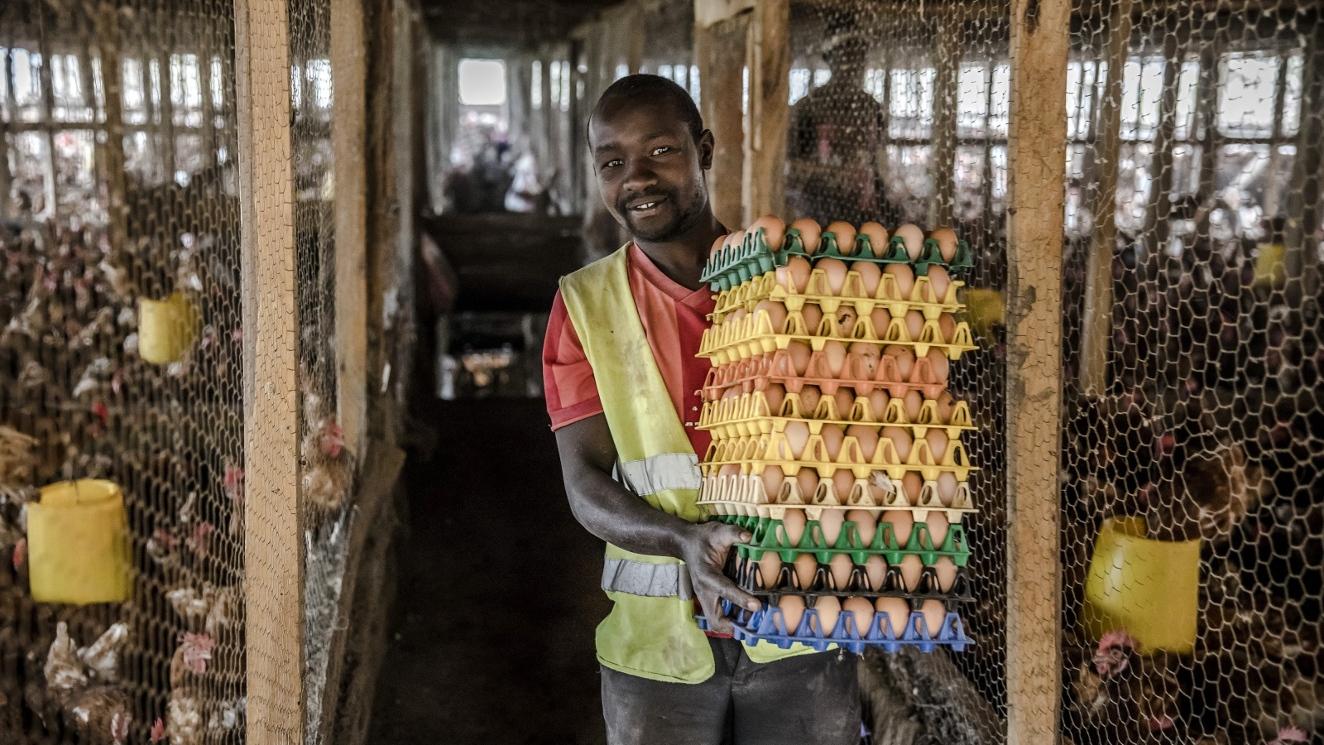Disrupted supply chains and worsening food security are among the fallout in Africa from the twin shocks of the Covid-19 pandemic and Russia’s invasion of Ukraine. This has awakened interest in the state of agricultural production and productivity and its role in the sustainable economic transformation of the continent, write David Luke and E. Olawale Ogunkola.
The economist Nicolas Kaldor argued that the growth rate of an economy is positively related to the growth rate of its manufacturing sector. The large body of work in the applied economics of growth that he influenced has recognised manufacturing as the engine that induces productivity and growth not only within the manufacturing sector but also in agriculture. This is key to why agro-industrialisation (AI) that builds upon Africa’s distinctive farming system of smallholders is essential for the modernisation of the continent’s agricultural sector.
Five-point plan for Agro-industrialisation
1) With a comparative advantage in agriculture, Africa can produce at scale. The continent has abundant agricultural resources that are currently underutilised. It is home to 60 per cent of the world’s arable land, so extensive agricultural practice is possible.
Agriculture currently employs about two-thirds of Africa’s population. Increased dynamism in this sector can have high social and economic impacts including on bulging youth unemployment. Upstream, AI can achieve such dynamism by facilitating the use of inputs such as fertilisers, technology and other support systems and services; and downstream through storage, processing, manufacturing, and distribution.
2) AI enhances productivity. The level of productivity in Africa’s agricultural sector is acknowledged to be very low. For example, cereal yields in Africa are between a quarter and a third of the world average. By employing modern agricultural methods AI can help to close that productivity gap.
AI generates demand for a wide range of agricultural services such as technicians, engineers, scientists, processors, distributors, transporters, marketers etc and key services sectors including financial and business services. These services are critical for driving innovation and efficiency as well as production at scale and value.
3) AI promotes food security and climate resilience. The current state of hunger in the continent where 1 out of 5 Africans are food insecure is due primarily to low agricultural output and poor distribution networks. Low agricultural output impacts, and is impacted, by three factors: conflict and insecurity; economic shocks; and extreme weather.
Conflict and insecurity lead to population displacement which in turn lead to disruption of agricultural practice and livelihoods. Economic shocks are reflected in sharp increases in food prices due to reduced production and disruptions of international supply chains. Climate resilience is boosted through adaptation and mitigation measures that are integral to AI’s technological processes and ecosystem of agricultural services. Measures such as sustainable land management practices to capture greenhouse gases and protect the soil can also be enabled by AI. Integrated farming that combines crop-livestock-forestry management systems is also compatible with AI. This is essential for the realisation of low-carbon agriculture and sustainable models for agribusiness.
4) AI is required to meet Africa’s growing demand for food and agro-based products. With the continent’s population projected to reach 2.5 billion by 2050, the productivity gains from AI offer a practical solution to this demographic time bomb. This applies not only to food security but also to generating new sources of employment in non-food agricultural sectors such as textiles, forestry, and pharmaceuticals among others, which are essential for everyday life.
5) AI strategies support export diversification, moderate external shocks and sustain stable economic growth. At its core, AI is trade in value-added agricultural products. Manufacturing processes, marketing, and other services add value to basic agricultural commodities that enable more diversified exports (e.g., raw sugar can be turned into a range of speciality sugars and inputs in pharmaceutical products and a variety of foods and beverages).
AI has the potential to change the current export structure of a typical African country that is dominated by basic agricultural commodities which are subject to extreme price volatility. The production and export of value-added agricultural products provides guard rails against commodity price shocks and the realisation of a steadier rate of economic growth.
At the national level, investments and incentives that are customised for Africa’s smallholder farming systems are critical. The African Union’s Comprehensive African Agricultural Development Programme offers a template for key policy measures. African countries agreed to allocate at least 10 per cent of national budgets to agriculture and rural development, especially towards improving rural infrastructure, agricultural research, and technology adoption. New tools such as agro-industrial parks, agro-processing zones, and special economic zones have emerged in the continent in countries such as Benin, Ethiopia, and Nigeria, among others. These offer regulatory frameworks to ensure that dynamic gains up and down the value chain can be realised.
At the regional and continental levels, market integration through the efforts of the regional economic communities and the African Continental Free Trade Area initiative can facilitate trade and regional value chains. The World Trade Organization must ensure that global trade rules that distort agricultural markets through subsidies and undermine competitiveness in African agriculture are reformed.
If properly harnessed, agro-industrialisation can help to improve food security across Africa with knock-on effects that will help improve local economies and help protect the climate.
Photo credit: Tom Frisk on Pexels





